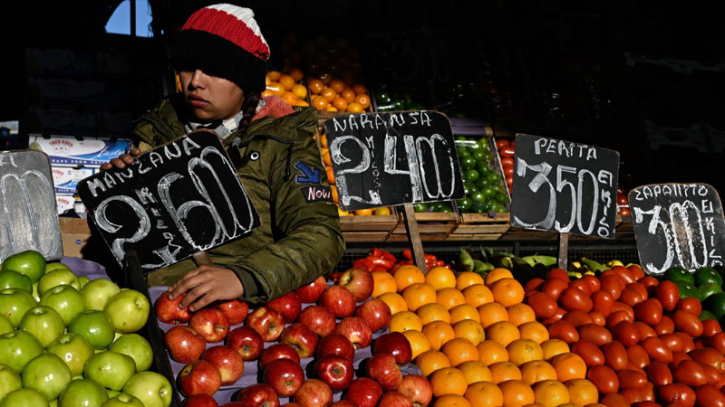IMF frees $7.5bn for Argentina, lowers bar for economy targets

The International Monetary Fund (IMF) on Wednesday approved the disbursement of $7.5 billion for Argentina after completing the fifth and sixth reviews of their $44 billion program, the Washington based global lender said.
Various economic targets included in the program were eased, as in the fourth review, and waivers for non-observance were also in place, the IMF said.
Total disbursements under the arrangement are now about $36 billion, the fund said. Most of the cash is being used to pay back the fund for another program.
IMF staff and Argentina had reached an agreement late in July, which had eased economic targets partly because a devastating drought has created a challenging environment for the grains exporter.
"The Executive Board assessed that key program targets were missed through end-June 2023 on account of the historic drought along with policy slippages, requiring the approval of waivers of nonobservance," the IMF said in a statement.
The reserve accumulation target and the primary fiscal balance and monetary financing of the deficit targets were also modified, the fund said, without providing details on the new targets.
Argentine Economy Minister Sergio Massa said in a press conference later on Wednesday that the new targets will be made public by the IMF on Friday.
Argentina's net foreign exchange reserves were in the red ahead of the disbursement and the South American country agreed a $775 million loan with Qatar plus a $1 billion bridge loan from regional development bank CAF and $1.7 billion from a swap with China to make a payment to the IMF earlier this month.
Argentina plans to tap the disbursement to repay China part of that money.
The next program review is scheduled for November, after the Oct. 22 first round presidential election vote. The disbursement is key for the center-left government coalition and its candidate, Massa, who said the new cash "guarantees a stability framework through the end of November."
Argentina, the largest debtor with the IMF after years of economic crisis, has seen locals lose faith in their currency as inflation hit triple-digits and almost four-in-10 people are below the poverty line.
The government last week pegged the official pesoARS=RASL to 350 per dollar in an 18% devaluation, and raised the benchmark interest rate by 21 percentage points to 118%, politically costly moves amid a presidential campaign. The government said the IMF wanted a "100%" devaluation.
The peso hit last week a record low of 785 per dollar in parallel exchanges ARSB=, more than double the official rate, and closed Wednesday at 725 per dollar.
.png)




